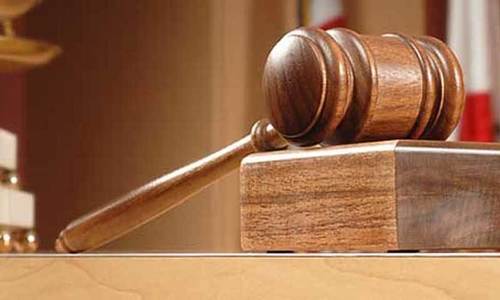A parliamentary panel on Tuesday unanimously approved a number of amendments to the Constitution related to judicial appointments to the Supreme Court, most prominent among which was elevation of high court judges on the basis of seniority.
At present, according to Article 175A of the Constitution, only the chief justice of Pakistan is appointed from among apex court judges solely on the basis of seniority.
For all other appointments to the Supreme Court, Article 175A of the Constitution empowers the Judicial Commission of Pakistan (JCP) to appoint judges to the top court - in practice from among high court judges - and does not bind it to follow the principle of seniority for these appointments.
But according to the suggested amendment by the panel, the Commission will be bound to appoint judges to the Supreme Court from among high court judges "in accordance with their seniority".
The amendments were proposed by Senator Farook H. Naek, Chairman of the Parliamentary Committee on Appointment of Judges in Superior Courts, during a meeting of the panel at Parliament House.
Senator Azam Nazeer Tarar, Senator Sarfraz Ahmed Bugti, MNA Ali Muhammad Khan, MNA Raja Pervaiz Ashraf, MNA Rana Sanaullah and the Senate secretary participated in the meeting.
According to a statement issued by the Senate Secretariat, the committee decided that Supreme Court judges would be appointed on the basis of seniority which would be determined by their date of appointment as a high court judge. In case two judges had been appointed on the same date, the decision would be made on the basis of their age, the statement added.
It also decided that ad hoc and acting judges of the apex court would be appointed permanently after confirmation by the committee.
The parliamentary panel also approved an amendment to Article 184(3) of the Constitution which is related to the jurisdiction of the Supreme Court. According to the amendment, when the apex court takes suo motu notice of a human rights case, the matter would be heard by three judges.
An appeal against an order of the three-judge bench could be filed within 30 days, the statement said, adding that the appeal would be heard by a five-judge bench which would announce its decision within 60 days.
If an appeal was filed against a decision in a suo motu case related to human rights under Article 184(3), the relevant decision would not be implemented until a judgement on the appeal was announced, the statement said.
Read: Only CJP can take suo motu notice, rules Supreme Court
An amendment related to extending the retirement age of high court judges from 62 years to 65 years was also approved, the statement further said.
According to another amendment that was approved, a reference related to misconduct by a Supreme Court judge would be decided by the Supreme Judicial Council within 90 days.
The parliamentary panel decided to discuss Article 175-A (appointment of judges to the Supreme Court, high courts and the Federal Shariat Court) in its next meeting, the statement said, adding that the federal law minister would also be invited.
The bill related to these amendments will then be tabled in the National Assembly and the Senate.
Elevation of judges
The parliamentary panel's approval of constitutional amendments comes weeks after the Pakistan Bar Council (PBC) opposed the move by the JCP to nominate Justice Ayesha Malik, the fourth most senior judge in the Lahore High Court, for elevation to the Supreme Court.
PBC vice chairman Khushdil Khan had said at the time that Justice Ayesha's elevation would ignore not only the LHC judges senior to her, including the chief justice, but also the chief justices of other high courts.
He said such nominations would affect the performance of senior judges.
Elevation and appointment of other judges have also led to opposition by bar councils in recent months.
In July, the Supreme Court Bar Association (SCBA) had voiced concern over the proposal to elevate a "junior" judge of the Sindh High Court to the Supreme Court, saying that it would raise questions about the capability of the four "senior justices being bypassed".
The JCP had later approved the elevation of the judge who was fifth on the seniority list of SHC, drawing a strong reaction from the Pakistan Bar Council.
The PBC vice chairman had called it unfortunate that the JCP proceeded to decide a matter ignoring the resolutions of the premier lawyers' body as well as the provincial bar councils and the associations.
Later, SHC Chief Justice Ahmed Ali Shaikh, when offered to serve the apex court as an ad hoc judge, twice refused to attend sittings of the Supreme Court, saying he was humbled by the JCP's offer but would not serve on an ad hoc basis.
In a letter to the JCP, Justice Shaikh had said he would have no objection if he was appointed or elevated to the Supreme Court as a permanent judge.















































